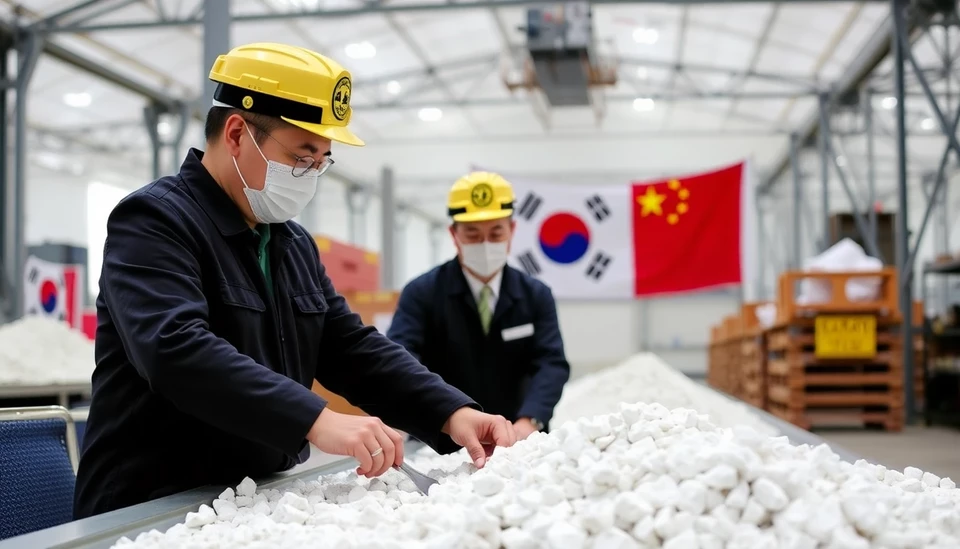
In a proactive response to escalating trade tensions between the United States and China, South Korea is making significant strides to enhance its mineral recycling capabilities. The government aims to fortify its supply chains and reduce dependencies on international markets, particularly in light of the competitive geopolitical landscape that poses risks to critical mineral supplies.
The push for increased recycling comes as South Korea recognizes the importance of securing essential minerals required for various industries, most notably electronics, batteries, and renewable energy technologies. Given the ongoing rivalry between the US and China, which has intensified over trade and technological dominance, South Korea's strategy is seen as a vital step to safeguard its economic interests and maintain its position as a leader in high-tech manufacturing.
The Ministry of Trade, Industry, and Energy is spearheading initiatives to increase the domestic processing of recycled minerals. Key to this plan is the establishment of more sophisticated recycling facilities that will enable the country to reclaim critical materials like lithium, cobalt, and nickel from used batteries and electronic waste. These efforts not only promise to enhance the sustainability of Korea's raw materials supply but also to contribute to the country's Green New Deal, which seeks to promote eco-friendly economic growth.
In addition to bolstering recycling infrastructure, the government is exploring partnerships with local universities and research institutions to innovate new methods for efficiently recovering minerals from urban mining. The focus on technology-driven solutions is aimed at reducing production costs and minimizing environmental impacts, aligning with global trends toward greener practices.
Interestingly, the move to ramp up recycling capabilities is not isolated to South Korea alone. Many countries globally are recognizing the importance of circular economy principles, which prioritize the reuse of materials to lessen environmental harm while securing economic resilience. As supply chain vulnerabilities become apparent, nations are increasingly looking toward domestic recycling as a strategic priority.
Moreover, South Korea's approach aligns with its advanced manufacturing sectors, which are heavily reliant on a stable supply of raw materials for the production of semiconductors, mobile devices, and electric vehicles. By focusing on a more self-sufficient resource strategy, Korea aims to position itself favorably in the global market amid uncertainties created by US-China trade friction.
This comprehensive recycling strategy is poised to not only address current challenges but also to future-proof South Korea's industries against potential disruptions. As geopolitical tensions evolve, the commitment to mineral recycling signals a preparedness to adapt to changing global dynamics, ensuring that South Korea remains resilient and competitive.
As South Korea embarks on this ambitious trajectory, the wider ramifications for the international market and its trading relationships will unfold over the coming years, particularly in how countries navigate the complex landscape of mineral sourcing and sustainability.
Stay tuned as South Korea's efforts in mineral recycling continue to develop and reshape the landscape of resource management amidst global trade challenges.
#MineralRecycling #SouthKorea #TradeTensions #USChina #Sustainability #GreenEconomy #Technology #CircularEconomy #ResourcesManagement #EconomicResilience
Author: Megan Clarke




